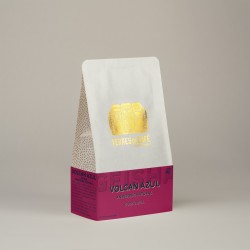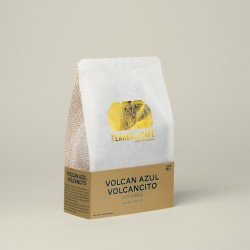Meeting a historical partner
Taking the full measure of a farm takes time. However, it is by taking your time that you better understand its coffees and what influences their profile. The time of observation, the time of discussion.
The production of a farm is not limited to objective criteria that can be easily assimilated and stacked on a descriptive sheet, such as its altitude, its varieties, its processes, etc.
In February 2023, I decided to spend a week at our historical partner, Volcan Azul Estate, in Costa Rica, with Alejo Castro to take the pulse of this farm which delivers world-class coffees to us every year.
I want to understand why Alejo's coffees are so characteristic, so recognizable, regardless of the variety, the fermentation process or the plot.
A typical day
Every morning, Alejo gives his instructions to his permanent managers: which plot to harvest, which fermentation process to start for this or that batch harvested, which batch in the drying phase to monitor, and which batch to transfer from the Wet Mill to the Dry Mill... he goes around the facilities three times a day, greets everyone, the permanent workers as well as the many seasonal workers during the harvest period.
Alejo is there, in everyone's mind even when he is absent. Rigorous and exemplary, quiet and respectful.
The quality and regularity of the batches go through the presence of the farmer on his farm, through his vision and his requirement.
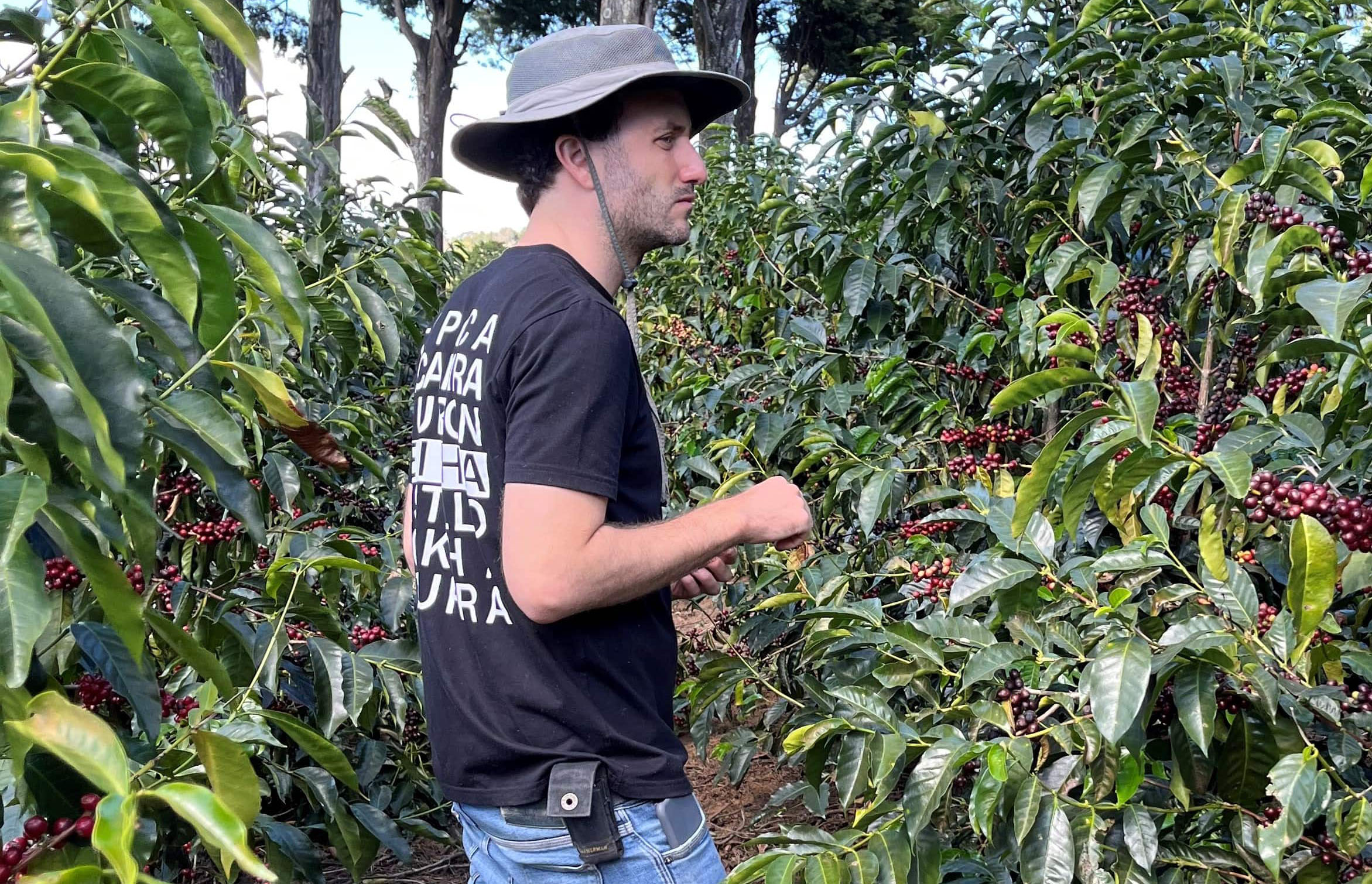
It also comes from observation and experience. It has been ten years since Alejo took over the management of the farm and he is only beginning to get a good idea of the varieties best suited to his terroir, and which will give the best coffees. By dint of repetition and evaluation, he also knows which fermentation mode will best enhance this or that variety.
The terroir, the variety and the fermentation protocol are the three factors of impact on the profile of the cup on the farm. The terroir is a climate, soils and, if we integrate humans into their terroir as we like to think, uses. Let's come there.
The coffees of Volcan Azul
As their name suggests, these cafes are volcano cafes, from Volcan Poas to be exact, still active, and which last spewed its ashes in the early 2000s.
Remember that out of 300 hectares, only 70 are planted. The rest of the property, and in particular the upper part which climbs 2000 meters to the Poas crater, is under forest conservation. The wind and the humidity of the clouds that the volcano catches, descend along this primary forest to flood the entire plantation with freshness.
The coffees that come out of here are unique, consistent and so recognizable.
This same wind, constant during the harvest period, and stronger in February and March, reaches the fermentation and drying areas, which keeps the fermentations at low temperatures, slowing down the process of sugar degradation.
Finally, this wind purifies and homogenizes the drying of the coffee, which is so important for the quality, the good aging and the regularity of the batches.
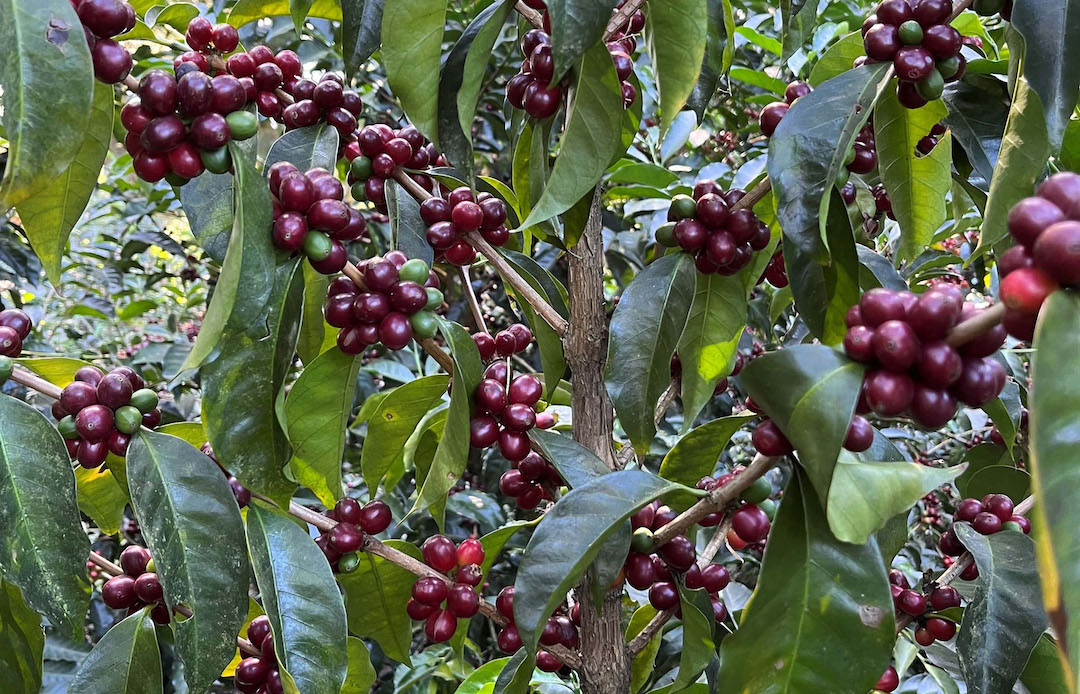
Cherries
So much for the microclimate, which itself fits into a climate particularly conducive to the cultivation of coffee, with a well-defined wet and dry season.
Rains from April to December, which allow the fruit to develop; sunshine and wind from January to the end of March, which allow the fruits to soak up sugar until optimum ripening, then to harvest and dry in good conditions.
This farm which delivers world-class coffees to us every year.
As for the regularly controlled fermentations, they are carried out with pure water from the springs captured at the top of the volcano, in the forest part of the farm. The cherries cannot therefore suffer from any contamination, microbial or taste. The fermentations are stopped (passage to drying) at the most opportune moment, not defined by performance objectives but by quality. The wind and the constant stirring will complete the work.
Every evening, at sunset, Alejo goes around the farm, checks if everything has been done according to the work plan, checks the sugar level of fermentations at the end of degradation, checks that the coffees in the drying areas are well covered for the night…say good evening to the staff.
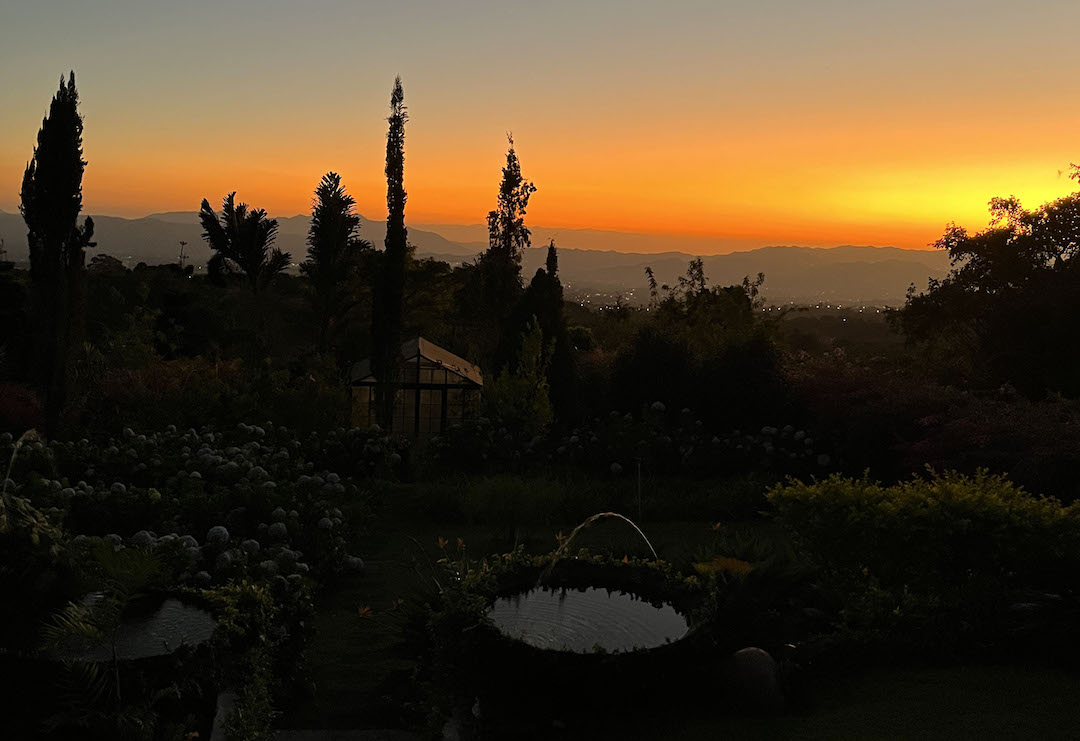
Everything is calm, the weather is good, the wind rushes into the cypresses and carries their perfume to our nostrils.
We walk and I think I found what I came looking for. The coffees that come out of here are unique, consistent and so recognizable by their minerality, their freshness, their fruitiness, their vivacity and their purity. There is a sensory gateway between all the lots on the farm, from the most modest to the most sophisticated.
I invite you to taste them to make the link between the place and the producer, and the attributes that I have just mentioned, and those you will feel.
February 2023
C. Servell.

